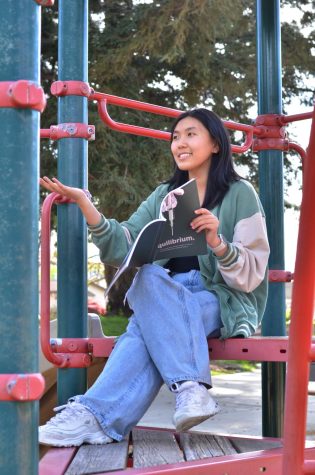Humans of Harker: Cadence and coaching
Through persistence and diligence, Michael Tran leads with jazz
“A lot of progress that you make with piano isn’t very linear. You’ll have spurts where you’re practicing for a week or something and you feel you’re making no progress. And then, a couple of weeks later, you have one day where all of a sudden, this stuff clicks. And then, you make a whole bunch of progress,” Michael Tran (12) said.
As each piano key prompts a felt-covered hammer to strike a finely tuned string at a piano recital, a high school pianist completes a complex piece, inspiring a young Michael Tran (12) to master the same proficiency as the pianists performing. Now, Michael, a jazz pianist and a swimming coach, hopes to see that same glimpse of awe in those who listen to his jazz pieces or the younger kids he coaches at a local swimming cabana club.
From the age of 5, Michael started training in classical piano. While practicing the instrument, Michael would often become upset after struggling with a section of music on the piano, but with consistent practice, Michael learned about the importance of commitment and diligence even at times of self-doubt or frustration.
“I realized that what I had been doing anyways was better than not doing anything at all,” Michael said. “That was reassuring in a way like, ‘Hey, at the end of the day, I still like this, and I still want to do this.’”
During his sophomore year, Michael was asked by his adviser, Dr. David Hart, to try out to be the jazz pianist for the upper school jazz band, to which he agreed. Yet, despite his experience in classical piano, it wasn’t easy for him at the beginning.
“The biggest challenge was being able to keep up [with jazz],” Michael said. “In jazz, there are very frequent chord changes, and you’re not necessarily focusing on that in classical piano because as a jazz pianist, you always have a sense of accompaniment. Jazz is also extremely improvisational.”
Through dedicating time to improve himself, Michael was able to polish his skills to become the jazz band’s pianist, learning the importance of hard work and persistence.
“A lot of progress that you make with piano isn’t very linear,” Michael said. “You’ll have spurts where you’re practicing for a week or something and you feel you’re making no progress. And then, a couple of weeks later, you have one day where all of a sudden, this stuff clicks. And then, you make a whole bunch of progress.”
Being in the jazz band for Michael isn’t only about playing pieces assigned to him, but is also about the freedom to play what he wants.
“[Playing the piano] is something that I enjoy,” Michael said. “A lot of the pieces I play are not just because my teacher says, ‘Oh, play this.’ It’s more of something that I really want to play and that I enjoy doing.”
As Michael’s jazz band teacher, Dr. Hart has grown to know Michael as a person, pianist and leader.
“He’s quiet, and yet his leadership comes in how he interacts with others,” Dr. Hart said. “I’m always impressed with his ability to support everyone around him. I love that he cares. His heart is in the right place with so many of these things.”
In addition to his leadership, Dr. Hart noticed his attentive nature in class to his comments that allowed Michael to flourish into a successful jazz pianist.
“I’ll say, ‘Hey, have you checked out this person or this person’s album?’ and then he will say, ‘Oh, no,’” Dr. Hart said. “And then he shows up to all our masterclasses, sits super close to these amazing piano players I brought in partially because of him and some other kids, and he’ll sit very close and listen.”
With his leadership, Michael also loves to collaborate with teammates in Harker Robotics. Receiving a Lego robotics set sparked Michael’s interest in learning about basic programming and assembly. With high school offering the opportunity to join a robotics team, Michael enrolled during his sophomore year, and his participation in robotics taught him the significance of teamwork.
“My friends said, ‘Alright, you’ve got to join [robotics] this year,’” Michael said. “It was really nice to be a part of a team where we were working towards this goal of creating this robot and going through that process of spending time with teammates.”
Friend since sixth grade and fellow robotics team member Alex Liou (12) remembers spending time with Michael on robotics and getting to know him better. During their time together, Alex grew to understand Michael’s unique kindness around others.
“He always puts others ahead of himself,” Alex said. ”He’s very relatable and passionate about what he does. I’ve never, ever had a conflict with him or anything. He’s always been a good friend.”
Close friend since kindergarten Rohan Thakur (12) remembers times where Michael showed him extreme kindness and how it helped him during tricky situations.
“The biggest thing I would say about Michael is as soon as you meet him, you’ll notice that he is the nicest person ever,” Rohan said. “He’s always willing to go out of his way to accommodate someone and to help someone out. For example, my parents both had to go to India at the same time when I was in seventh or eighth grade, [and] Michael said I can stay over, so Michael and his family accommodated me and it was great.”
When taking a break from robotics and academics, Michael can be found unwinding with his other passion for helping others by coaching swimming at a local cabana club, a smaller club that is not as competitive compared to a normal swim team. Having joined the club almost seven years ago, he now teaches 7-year-olds to high schoolers over the summer. The transition from being in the water to coaching swimmers from the deck changed his perspective on coaching.
“It hit me that I’m now the person who’s going to be giving that [advice] and I’m serving the same role that the coaches that I’ve got to know really well before me had given me,” Michael said. “There was this chain of mentors where I had to step into that role.”
With coaching, Michael sees the importance of improving others, and in the process, himself. Working with individuals to help them progress, he slowly refined his own coaching, learning new things about the kids he teaches.
“In coaching, it’s the improvement of others [that is important],” Michael said. “When I started [coaching] you’re on a whole other level and you’re on the flip side of things. You want to be working very closely with the kids to make sure that you’re giving them attention and you’re being constructive.”
For Michael, coaching allows for a special connection with a mentor and mentee, and forming these bonds gives him delight.
“The joy that I get out of coaching is seeing someone that you’re connected to and and putting them in situations where you know that they maybe aren’t the most comfortable at first,” Michael said. “But then seeing that payoff [and] seeing that tangible improvement across everyone is really gratifying.”
From playing piano for jazz band to helping others in both swimming and robotics, Michael values the roles of dedication, kindness and leadership.
“It’s important to do something that you like to do, something that makes you feel good,” Michael said. “It doesn’t have to be something you’re good at. But if you’re doing something you’re good at, maybe [what you’re doing] has some positive impact, whether it’s on something broader that you can’t see, or if it’s on someone you know very well.”
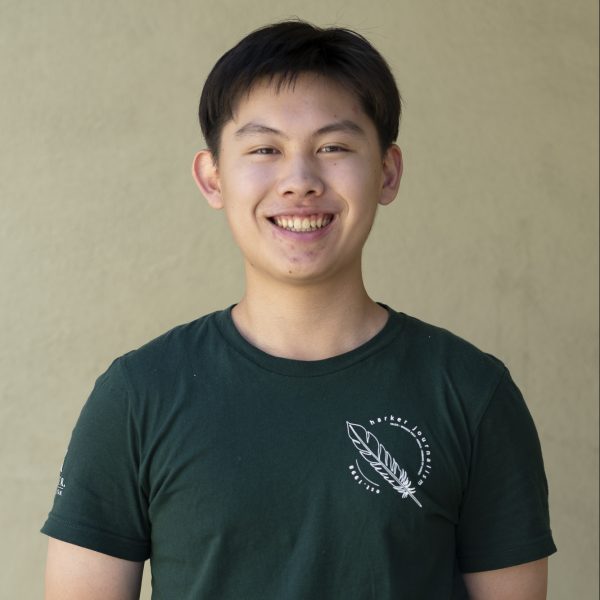
Brandon Zau (12) is the photo editor for Harker Aquila, and this is his fourth year on staff. This year, Brandon hopes to celebrate his senior Class of...































![Setter Emma Lee (9) sets the ball to the middle during the match against Pinewood on Sept. 12. “[I’m looking forward to] getting more skilled, learning more about my position and also becoming better friends with all of my teammates, Emma said.](https://harkeraquila.com/wp-content/uploads/2023/09/DSC_4917-2-1200x795.jpg)













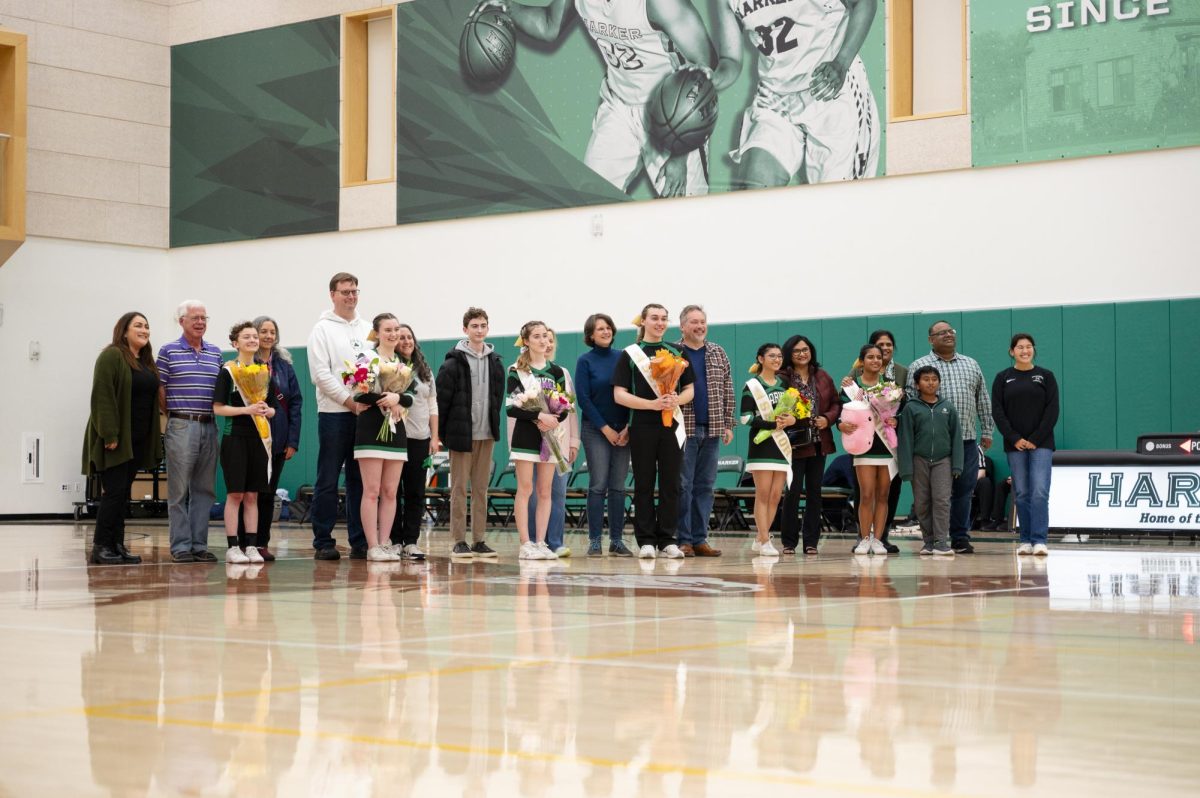


















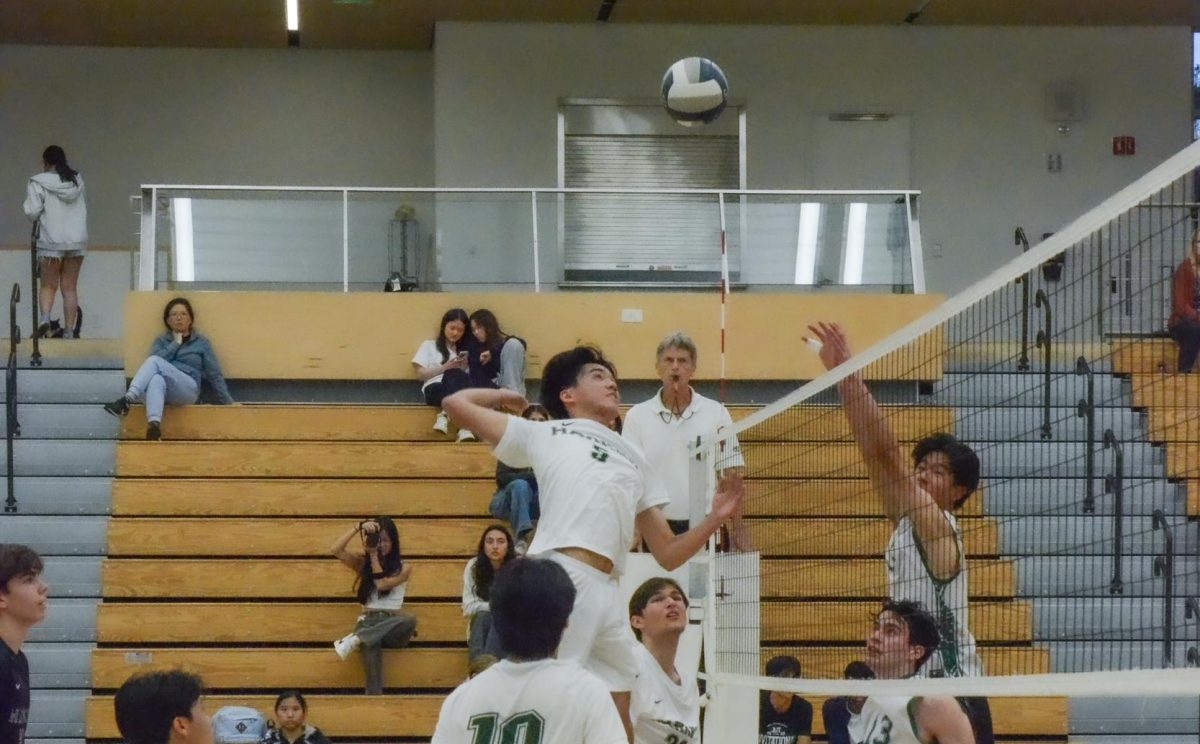
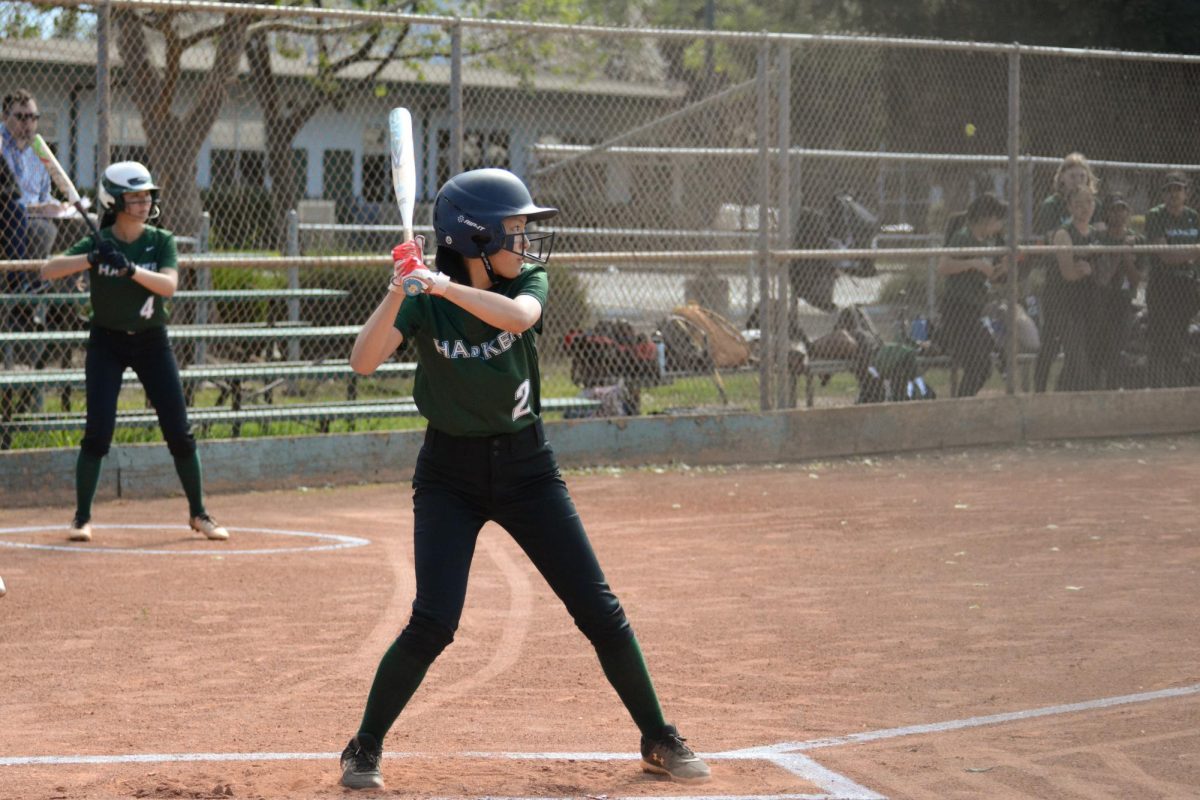
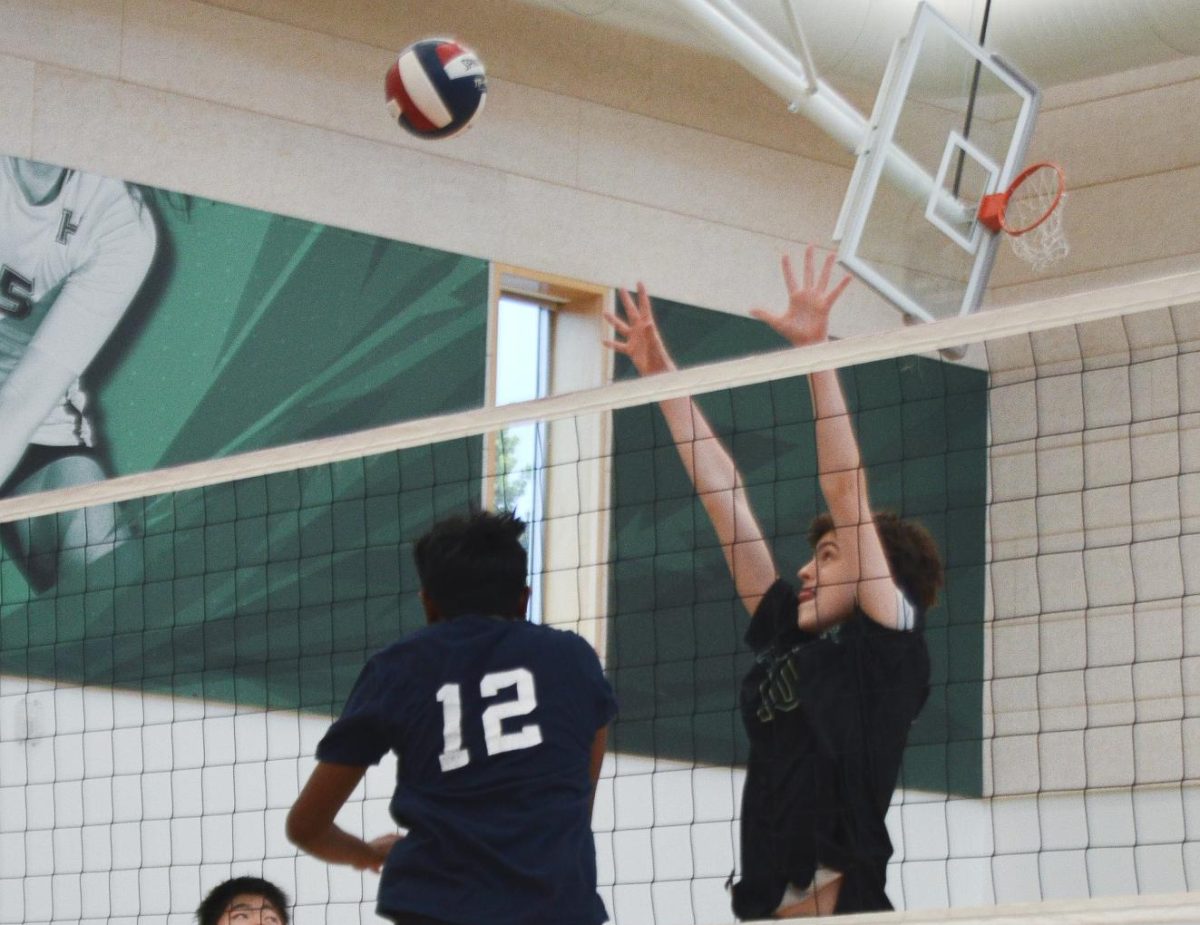
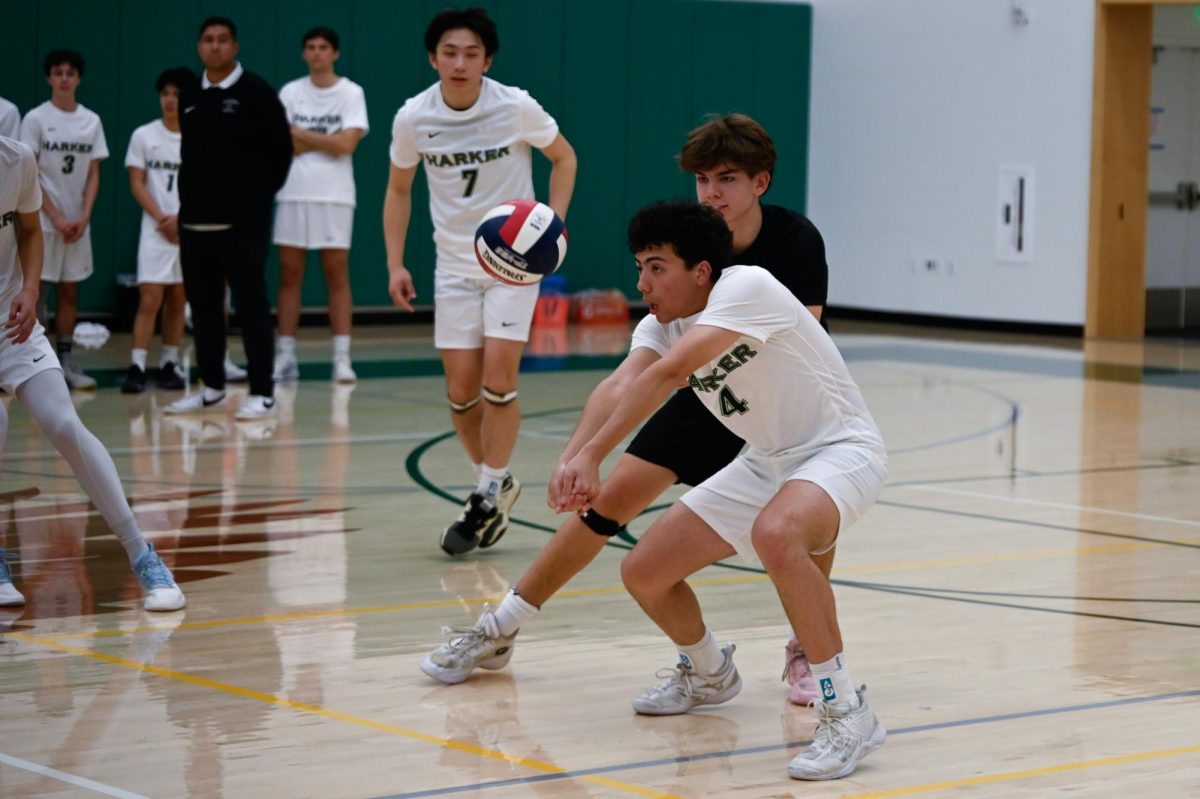
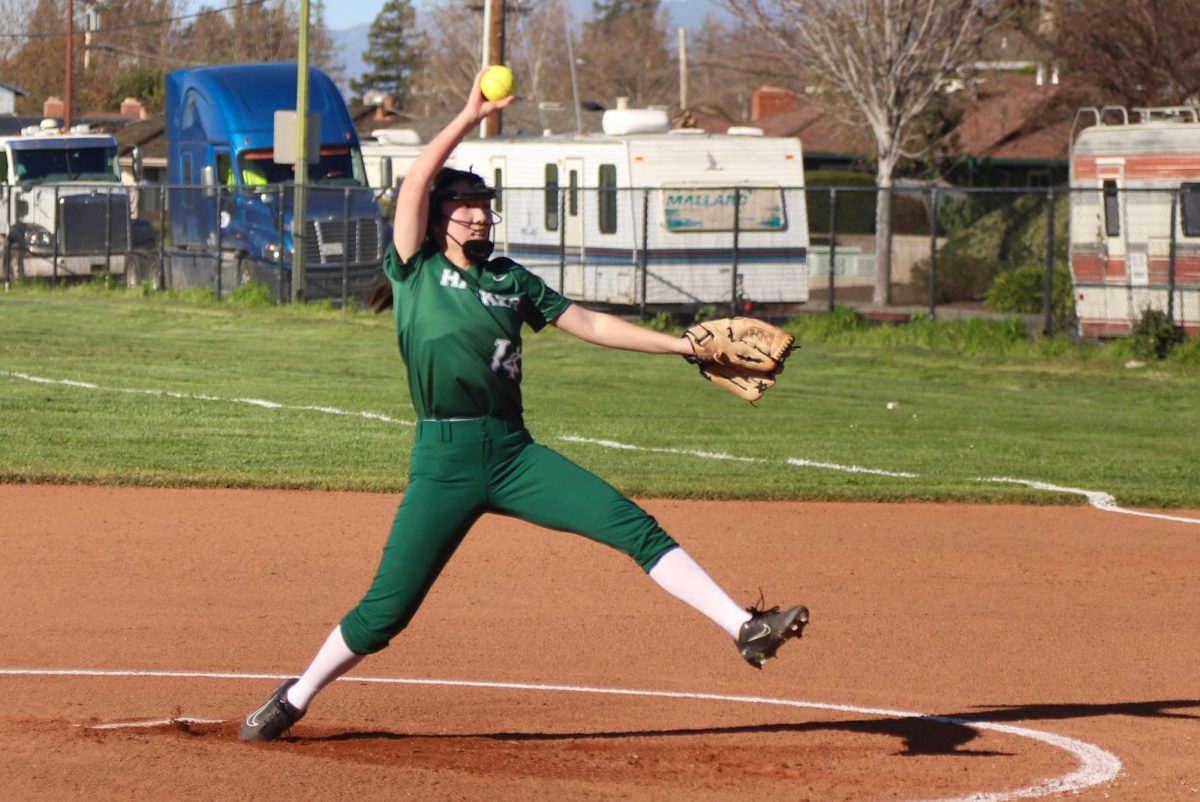



























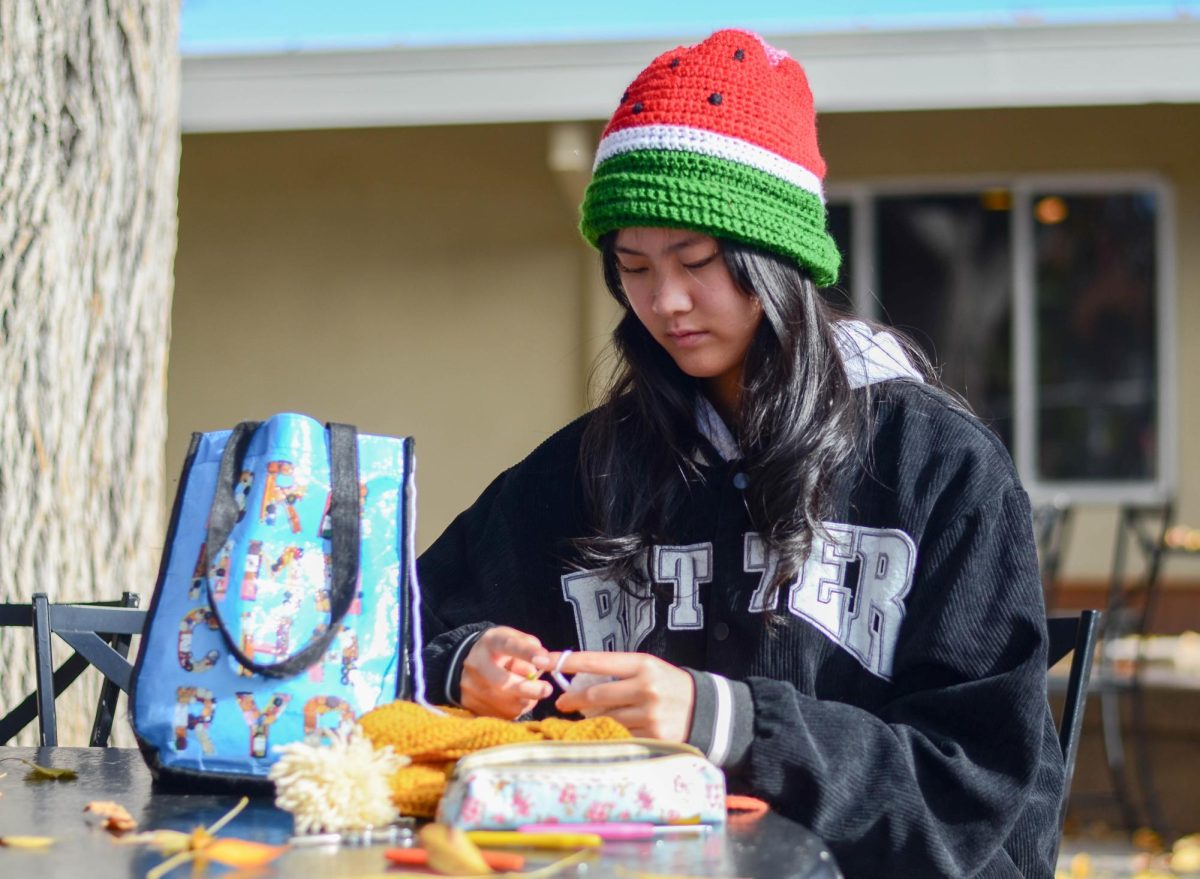
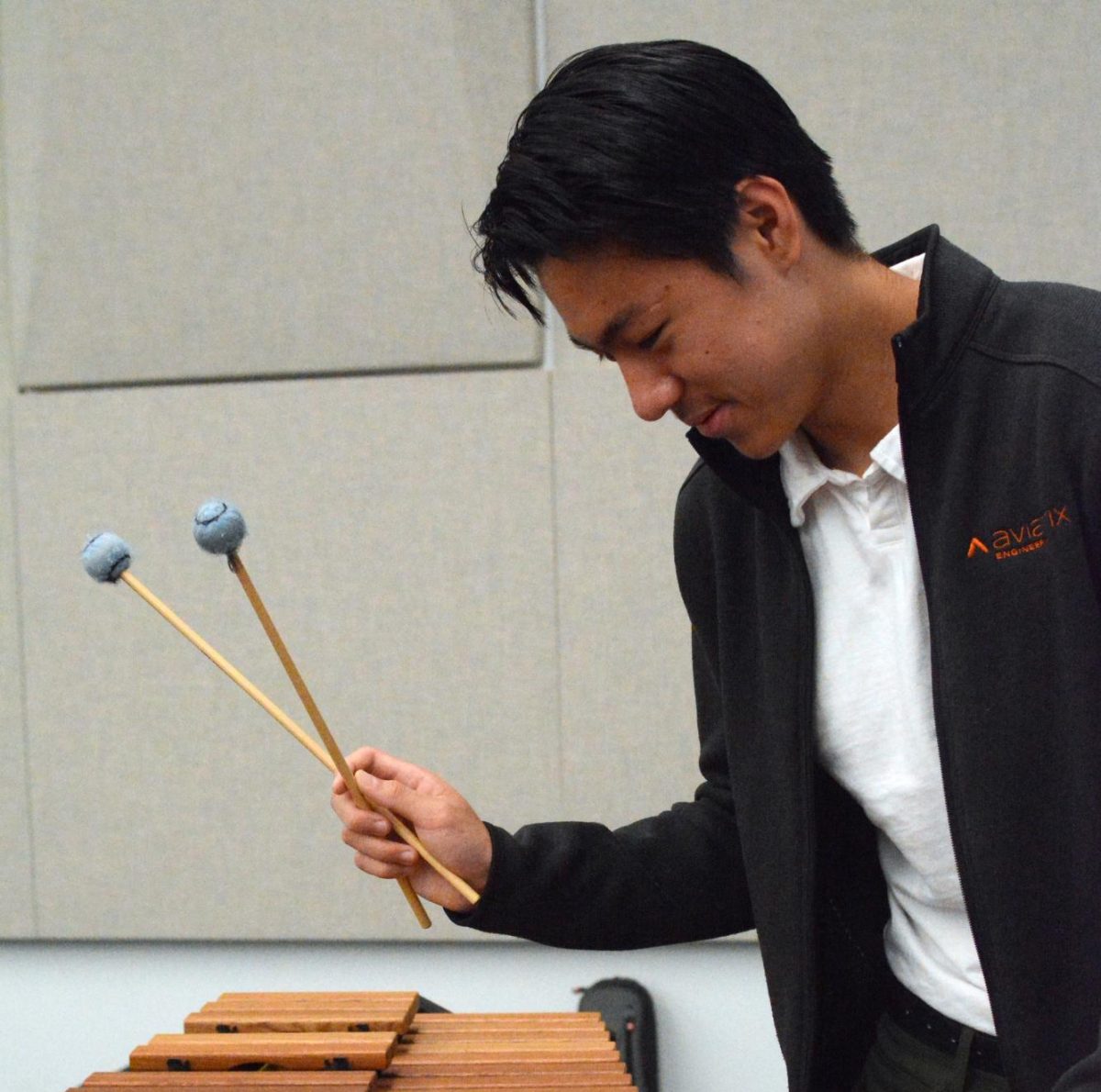
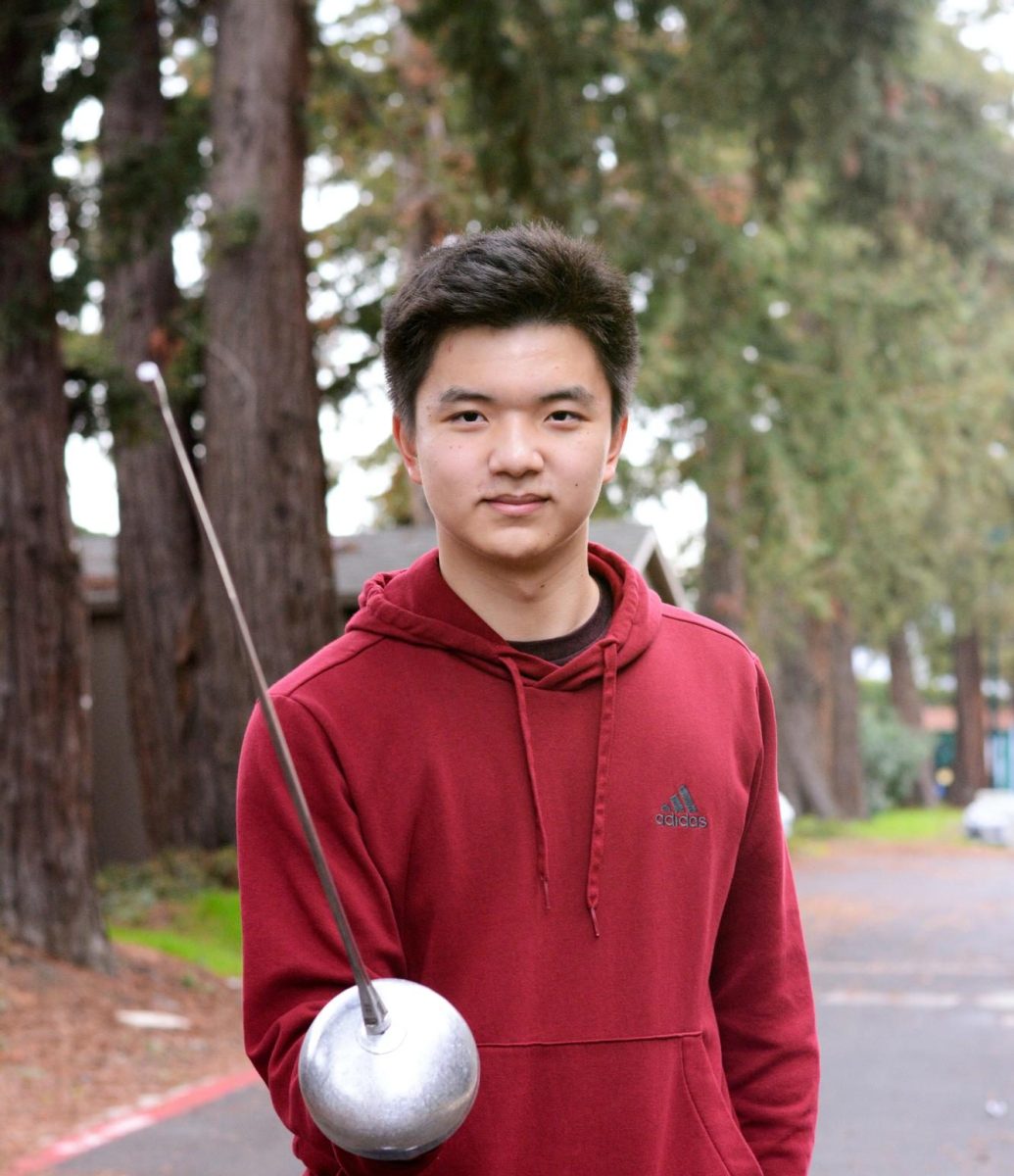
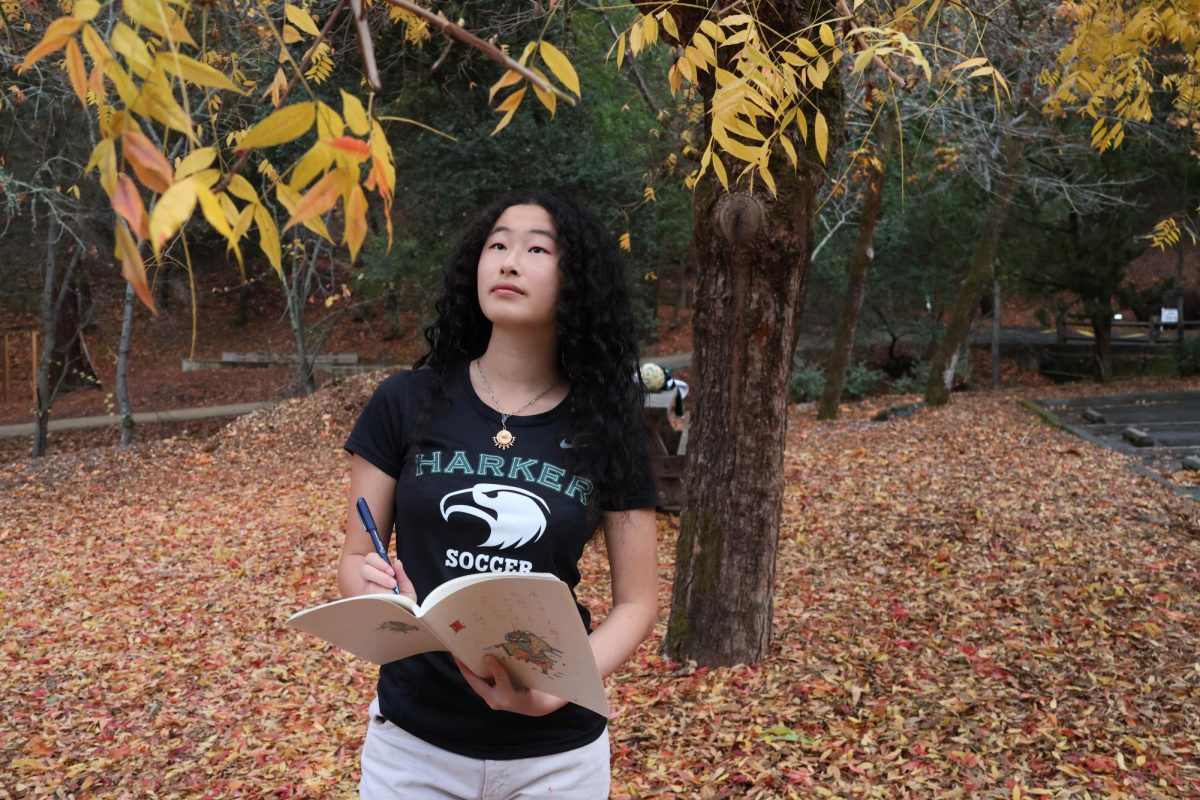
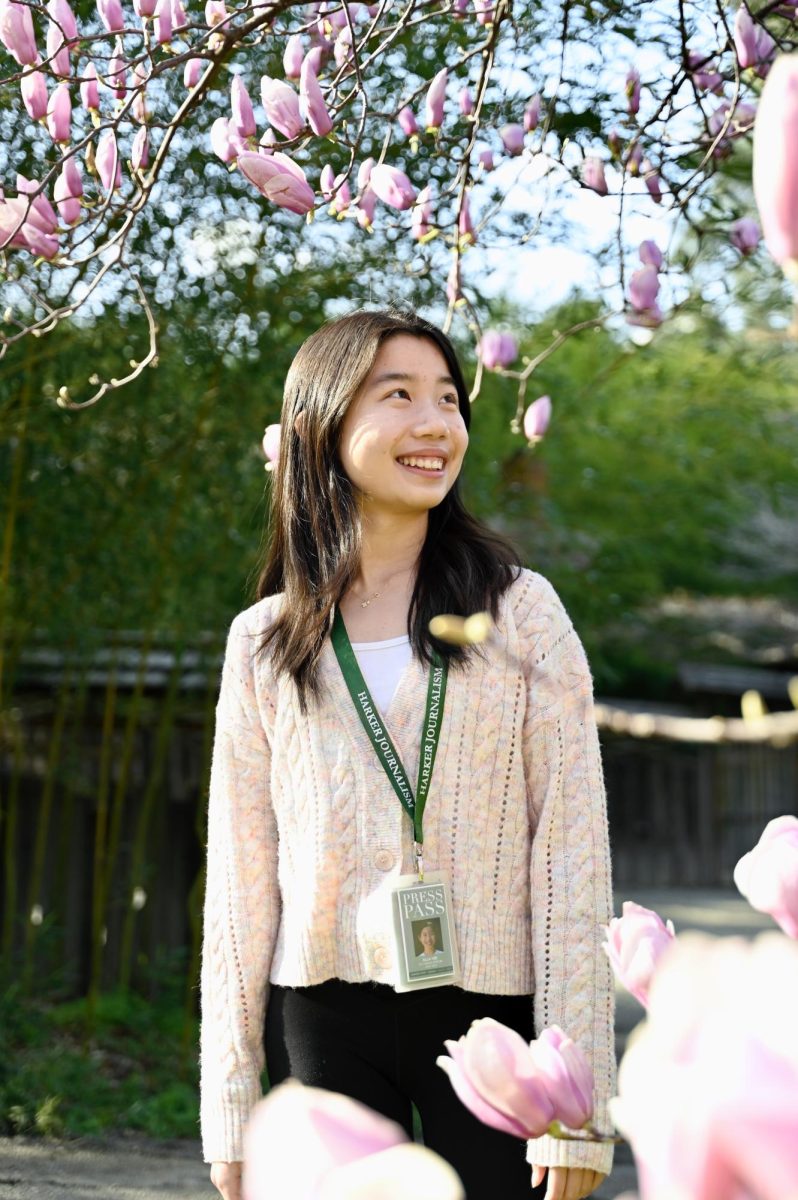









![“[Building nerf blasters] became this outlet of creativity for me that hasnt been matched by anything else. The process [of] making a build complete to your desire is such a painstakingly difficult process, but Ive had to learn from [the skills needed from] soldering to proper painting. Theres so many different options for everything, if you think about it, it exists. The best part is [that] if it doesnt exist, you can build it yourself, Ishaan Parate said.](https://harkeraquila.com/wp-content/uploads/2022/08/DSC_8149-900x604.jpg)


![“Animation just clicked in a way. I had been interested in art, but that felt different. [Animation] felt like it had something behind it, whereas previous things felt surface level. I wasnt making that crazy of things, but just the process of doing it was much more enjoyable, Carter Chadwick (22) said.](https://harkeraquila.com/wp-content/uploads/2022/08/Screen-Shot-2022-08-16-at-9.44.08-AM-900x598.png)


![“When I came into high school, I was ready to be a follower. But DECA was a game changer for me. It helped me overcome my fear of public speaking, and its played such a major role in who Ive become today. To be able to successfully lead a chapter of 150 students, an officer team and be one of the upperclassmen I once really admired is something Im [really] proud of,” Anvitha Tummala (21) said.](https://harkeraquila.com/wp-content/uploads/2021/07/Screen-Shot-2021-07-25-at-9.50.05-AM-900x594.png)



![“[Volleyball has] taught me how to fall correctly, and another thing it taught is that you don’t have to be the best at something to be good at it. If you just hit the ball in a smart way, then it still scores points and you’re good at it. You could be a background player and still make a much bigger impact on the team than you would think,” Anya Gert (’20) said.](https://harkeraquila.com/wp-content/uploads/2020/06/AnnaGert_JinTuan_HoHPhotoEdited-600x900.jpeg)

![“Im not nearly there yet, but [my confidence has] definitely been getting better since I was pretty shy and timid coming into Harker my freshman year. I know that theres a lot of people that are really confident in what they do, and I really admire them. Everyones so driven and that has really pushed me to kind of try to find my own place in high school and be more confident,” Alyssa Huang (’20) said.](https://harkeraquila.com/wp-content/uploads/2020/06/AlyssaHuang_EmilyChen_HoHPhoto-900x749.jpeg)













![“My slogan is ‘slow feet, don’t eat, and I’m hungry.’ You need to run fast to get where you are–you arent going to get those championships if you arent fast,” Angel Cervantes (12) said. “I want to do well in school on my tests and in track and win championships for my team. I live by that, [and] I can do that anywhere: in the classroom or on the field.”](https://harkeraquila.com/wp-content/uploads/2018/06/DSC5146-900x601.jpg)

![“I think getting up in the morning and having a sense of purpose [is exciting]. I think without a certain amount of drive, life is kind of obsolete and mundane, and I think having that every single day is what makes each day unique and kind of makes life exciting,” Neymika Jain (12) said.](https://harkeraquila.com/wp-content/uploads/2017/06/Screen-Shot-2017-06-03-at-4.54.16-PM.png)






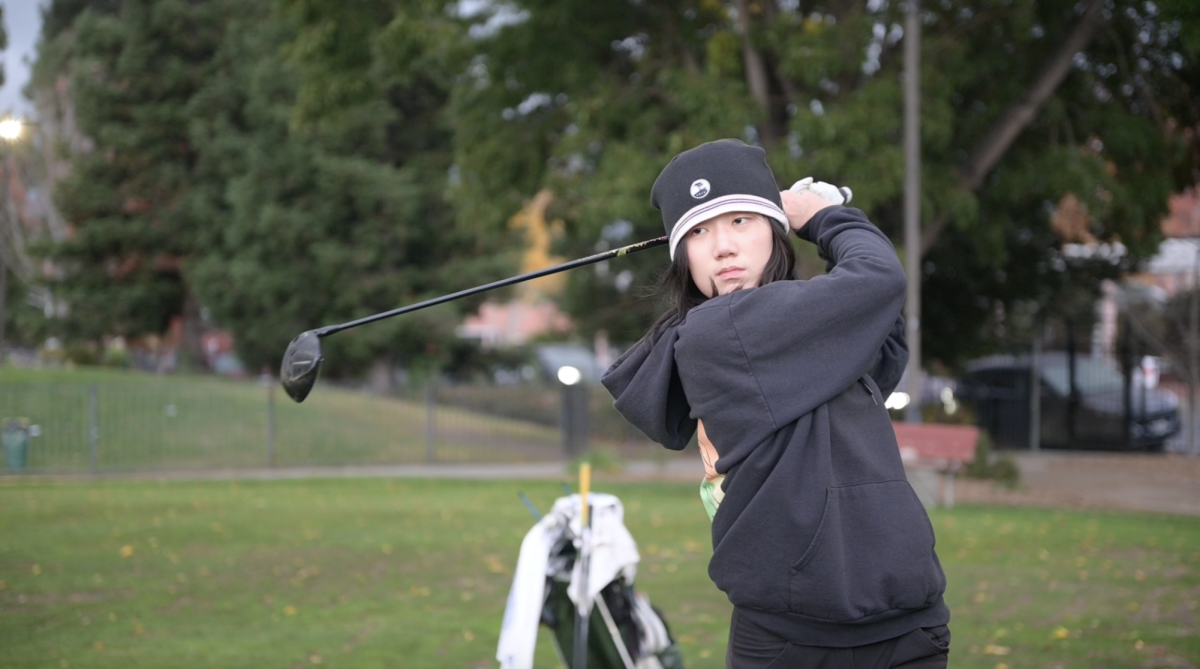
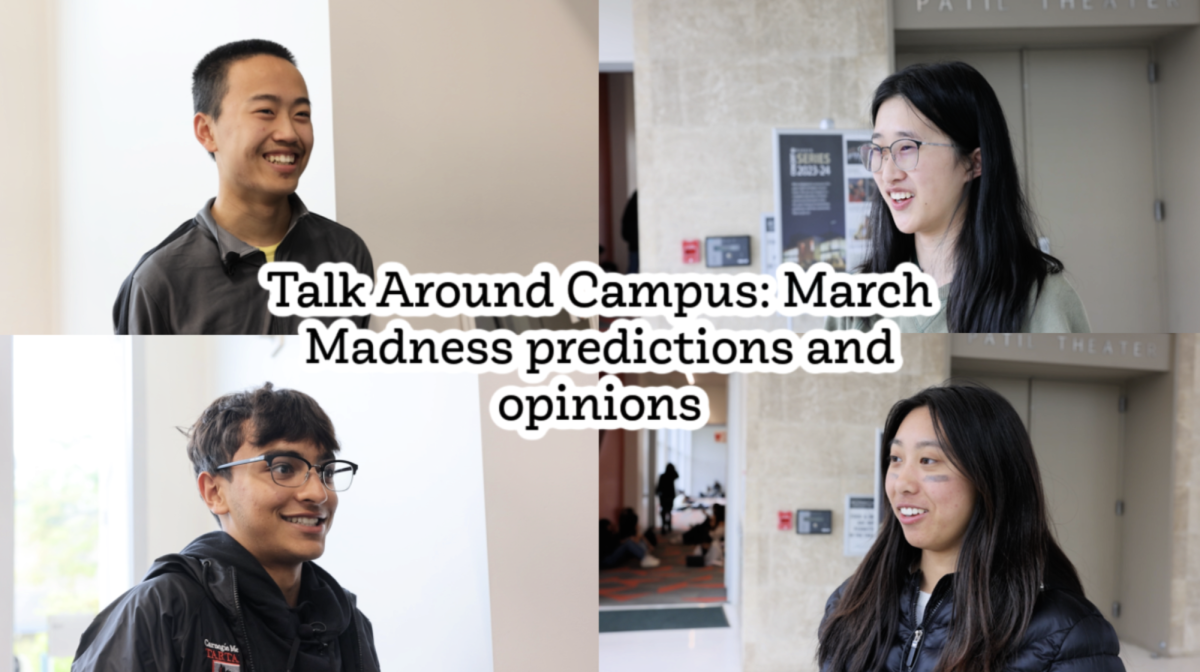
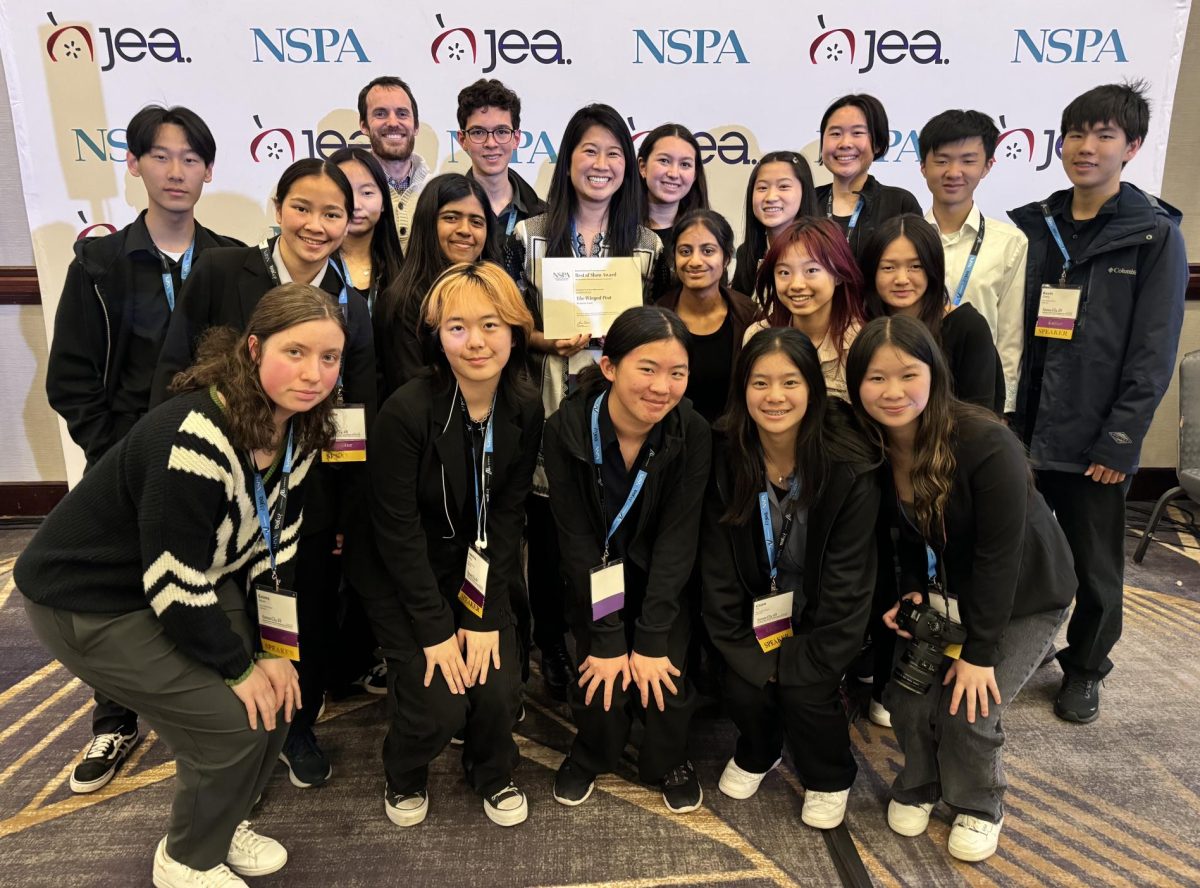


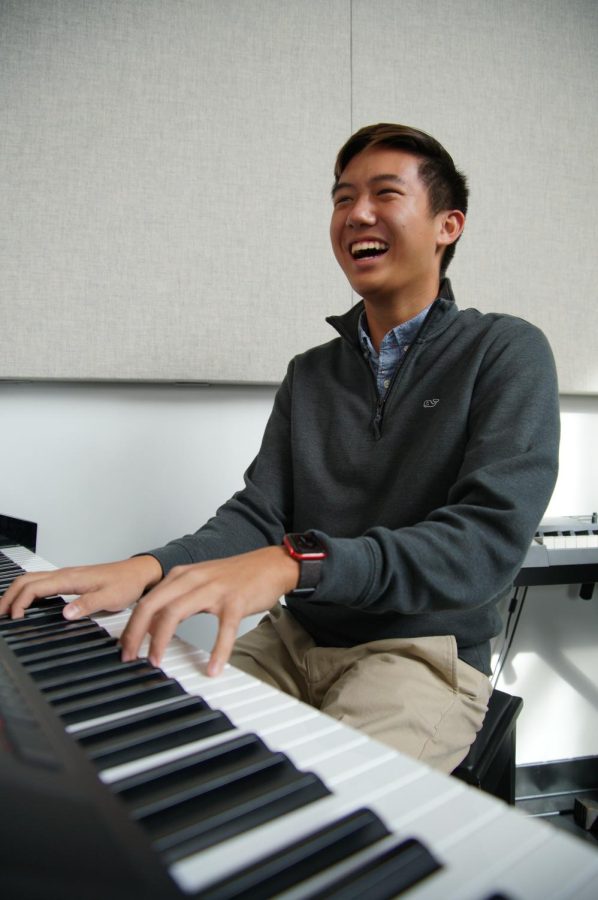
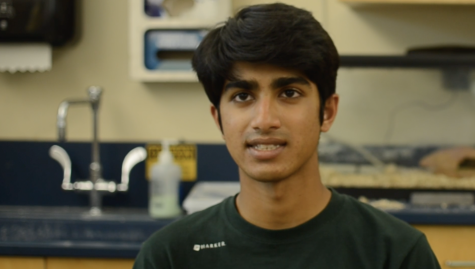
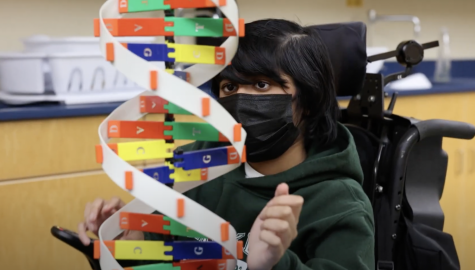
![“[Building nerf blasters] became this outlet of creativity for me that hasnt been matched by anything else. The process [of] making a build complete to your desire is such a painstakingly difficult process, but Ive had to learn from [the skills needed from] soldering to proper painting. Theres so many different options for everything, if you think about it, it exists. The best part is [that] if it doesnt exist, you can build it yourself, Ishaan Parate said.](https://harkeraquila.com/wp-content/uploads/2022/08/DSC_8149-475x319.jpg)
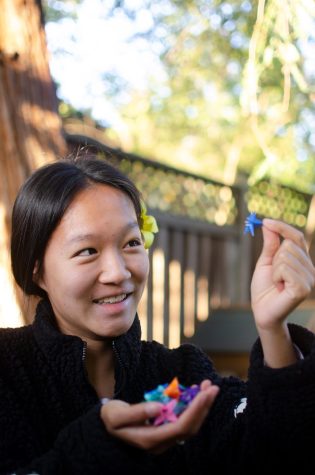
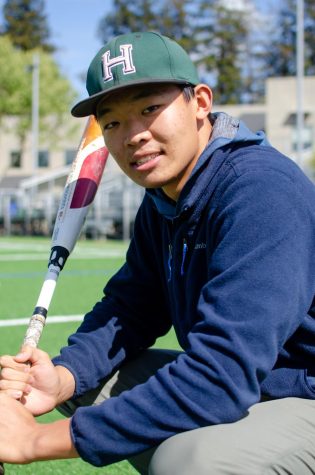
![“Animation just clicked in a way. I had been interested in art, but that felt different. [Animation] felt like it had something behind it, whereas previous things felt surface level. I wasnt making that crazy of things, but just the process of doing it was much more enjoyable, Carter Chadwick (22) said.](https://harkeraquila.com/wp-content/uploads/2022/08/Screen-Shot-2022-08-16-at-9.44.08-AM-475x316.png)
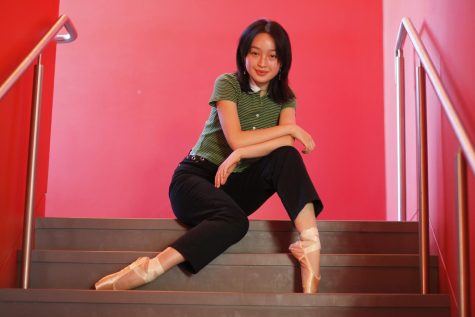
![My favorite thing is being able to immerse yourself in [dance]. Its one thing where you can really see improvement if you put in the practice, and if you dont put in the practice you wont improve. The ability to sync into repetition and go into the same counts over and over again to see some improvement is really captivating, and always draws me back to it, Zeel Thakkar (22) said.](https://harkeraquila.com/wp-content/uploads/2022/08/DSC_8147-475x315.jpg)
![“It’s the mind bending things that I’m really passionate about, the things where youre like, ‘I have no idea why this happens, but I want to figure that out.’ It’s a genuine, ‘I don’t get it, but I want to.’ Or perhaps it’s [that] I don’t want to never understand it. I don’t want to have a topic that I dont understand and never understand it, Spencer Cha (22) said.](https://harkeraquila.com/wp-content/uploads/2022/08/spencerchahoh_ireneyuan-475x317.jpg)
